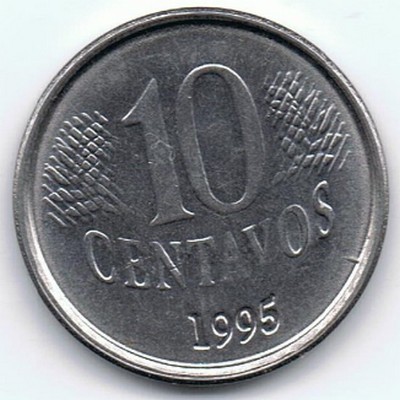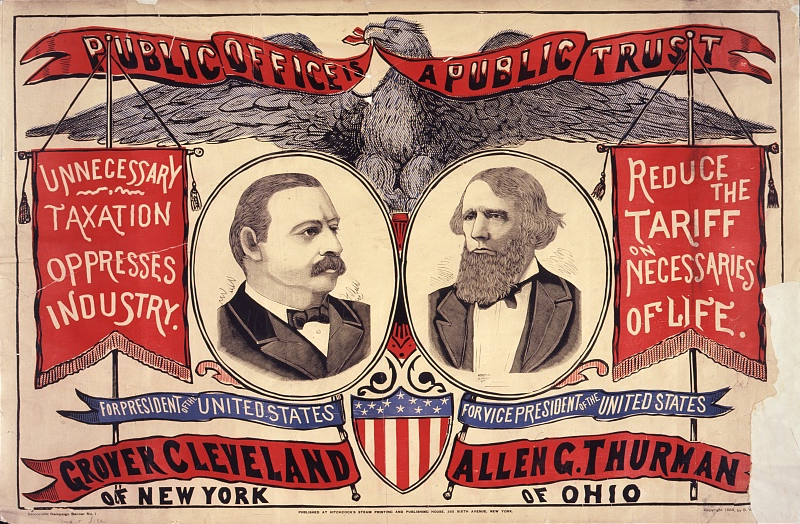|
Federal Police Of Brazil
The Federal Police of Brazil () or Department of Federal Police () is a federal law enforcement agency of Brazil and one of the most well-known nationwide police forces of the Executive Power of Brazil. Besides with Polícia Rodoviária Federal (Federal Highways Police) and Polícia Penal Federal (Federal Prisons Police) and the Polices from the Capital, Brasília, Federal District, which is also organized and maintained from the Federal government. In addition Brazil has more federals Polices from another powers, like the Institutional Polices from the Congress (Polícia Legislativa Federal), Federal Prossecuters Officers Police (Polícia do MPU) and Judicials Police of the Federal Judiciary. From 1944 to 1967 it was called the Federal Public Safety Department (). The Federal Police Department is responsible for combating crimes against federal institutions, international drug trafficking, terrorism, cyber-crime, organized crime, public corruption, white-collar crime, money la ... [...More Info...] [...Related Items...] OR: [Wikipedia] [Google] [Baidu] |
Brazilian Real
The Brazilian real (plural, pl. '; currency symbol, sign: R$; ISO 4217, code: BRL) is the official currency of Brazil. It is subdivided into 100 centavos. The Central Bank of Brazil is the central bank and the issuing authority. The real replaced the Brazilian cruzeiro real, cruzeiro real in 1994. the real was the twentieth most traded currency. History Currencies in use before the current real include: * The ''Portuguese real'' from the 16th to 18th centuries, with 1,000 ''réis'' called the ''milréis''. * The ''Brazilian real (old), old Brazilian real'' from 1747 to 1942, with 1,000 ''réis'' also called the ''milréis''. * The ''Brazilian cruzeiro (1942–1967), first cruzeiro'' from 1942 to 1967, at 1 cruzeiro = 1 ''milréis'' or 1,000 ''réis''. * The ''Brazilian cruzeiro novo, cruzeiro novo'' from 1967 to 1970, at 1 cruzeiro novo = 1,000 first cruzeiros. From 1970 it was simply called the ''Brazilian cruzeiro (1967-1986), (second) cruzeiro'' and was used until 1986. * ... [...More Info...] [...Related Items...] OR: [Wikipedia] [Google] [Baidu] |
Brazilian Constitution
The Constitution of the Federative Republic of Brazil () is the supreme law of Brazil. It is the foundation and source of the legal authority underlying the existence of Brazil and the federal government of Brazil. It replaced the autocratic 1967 constitution capping 21 years of military dictatorship and establishing Brazil's current republic, often referred to as the New Republic. Made in the light of the Brazilian transition to democracy, it resignified the role of the state in the citizens' lives, providing a vast system of human and individual rights protection, social welfare, and democratic tools. Overview The 1988 Brazilian Constitution is the seventh enacted since the country's independence in 1822, and the sixth since the proclamation of the republic in 1889. It was promulgated on 5 October 1988, after a two-year process in which it was written from scratch. History The current Constitution of Brazil was drafted as a reaction to the period of military dictatorshi ... [...More Info...] [...Related Items...] OR: [Wikipedia] [Google] [Baidu] |
COT (6883689782)
COT or cot may also refer to: Bed * Camp bed (North American English) * Infant bed (British English) Science and technology * Car of Tomorrow, a car design used in NASCAR racing * Cost of transport, an energy calculation * Cotangent (cot), a trigonometric function * Cyclooctatetraene, an unsaturated hydrocarbon * Finger cot, a hygienic cover for a single finger * Chain-of-thought prompting, a method of engineering language model prompts * Malbec (French: ''Côt''), a grape variety Government and military * Colombian Time, the time zone used in Colombia; see Time in Colombia * Comando de Operações Táticas, a Brazilian counter-terrorism force * Commitments of Traders, a US market report * Committee on Toxicity of Chemicals in Food, Consumer Products and the Environment, in the UK Transportation * Coatesville station (Amtrak station code), US * Cottingley railway station (National Rail station code), England * Costa Airlines (former ICAO airline designator), a defunct airline ... [...More Info...] [...Related Items...] OR: [Wikipedia] [Google] [Baidu] |
Director-General
A director general, general director or director-general (plural: ''directors general'', ''general directors'', ''directors-general'', ''director generals'' or ''director-generals'') is a senior executive officer, often the chief executive officer, within a governmental, statutory, NGO, third sector or not-for-profit institution. The term is commonly used in many countries worldwide, but with various meanings. Australia In most Australian states, the director-general is the most senior civil servant in any government department, reporting only to the democratically elected minister representing that department. In Victoria and the Australian government, the equivalent position is the secretary of the department. The Australian Defence Force Cadets has three directors-general which are all one-star ranks: *Director-General of the Australian Navy Cadets *Director-General of the Australian Army Cadets *Director-General of the Australian Air Force Cadets Canada In Canada, the t ... [...More Info...] [...Related Items...] OR: [Wikipedia] [Google] [Baidu] |
Civil Police (Brazil)
In Brazil, the Civilian Police () is the name of the investigative state police forces. The Civilian Police are agencies of the public administration of the states and of the Federal District of Brazil, whose function is, under Article 144 of the Federal Constitution of 1988, public security and the preservation of the public order, the safety of the people and of the patrimony. Each of the states and the Federal District has its own civilian police department, which carries out detective work, forensics and criminal investigation, acting as a state bureau of investigation, while the "military police" carry out preventive police duties. It aims at the exercise of functions of judiciary police and the exercise of activities of administrative and security police, which are indispensable to the preservation of the juridical order, to the (promotion of the) harmonic life of the community, and to guarantee citizens' rights and liberty. Description The Civilian Police of Brazil ha ... [...More Info...] [...Related Items...] OR: [Wikipedia] [Google] [Baidu] |
Sede Da Polícia Federal
{{disambiguation, surname ...
Sede may refer to: People * Gérard de Sède * Marc Dion Sédé (born 1987), Ivorian football player Places * Sede, Ethiopia * Sede, district of Santa Maria, Brazil Other * SEDE, the Subcommittee on Security and Defence of the European Parliament See also * Sde (other) * SDE (other) SDE may refer to: Science and technology * Screen-door effect, a video display issue * Sebacoyl dinalbuphine ester, an analgesic * Spectral density estimation * Stochastic differential equation * Sub-divisional error, a read head error mechanism ... [...More Info...] [...Related Items...] OR: [Wikipedia] [Google] [Baidu] |
Guanabara State
The State of Guanabara (, ) was a state of Brazil from 1960 to 1975, which included the city of Rio de Janeiro. It was named after Guanabara Bay to the east of the state. It was created from the territory of the old Federal District when the federal capital moved from Rio de Janeiro to Brasília and a new Federal District was erected around the new capital. In 1975 the State of Guanabara was merged with the surrounding State of Rio de Janeiro, within which its territory became the Municipality of Rio de Janeiro. History In 1834, the city of Rio de Janeiro was elevated to Imperial capital of the Empire of Brazil, and was included in the Neutral Municipality (). The surrounding Province of Rio de Janeiro (which did not include the city) had its capital city in Niterói. When Brazil became a republic in 1889, the city of Rio de Janeiro remained the national capital, and the territory of the Neutral Municipality became the Federal District (), while the surrounding homonymou ... [...More Info...] [...Related Items...] OR: [Wikipedia] [Google] [Baidu] |
Public Trust
The concept of public trust relates back to the origins of democratic government and its seminal idea that within the public lies the true power and future of a society; therefore, whatever ''trust'' citizens place in its officials must be respected. One of the reasons that bribery is regarded as a notorious evil is that it contributes to a culture of political corruption in which public trust is eroded. Other issues related to political corruption or betrayal of public trust are lobbying, special interest groups and the public cartel. United States In the United States "Public Trust" is a term of art referring to any public property which belongs to the whole of the people. Initially it was used within the formation of the government to refer to politicians who achieve power by election. In the United States Constitution, all members of Congress as well as the President, and Vice President are elected seats therein. The first state constitution drafted in the United States ... [...More Info...] [...Related Items...] OR: [Wikipedia] [Google] [Baidu] |
Narcotics
The term narcotic (, from ancient Greek ναρκῶ ''narkō'', "I make numb") originally referred medically to any psychoactive compound with numbing or paralyzing properties. In the United States, it has since become associated with opiates and opioids, commonly morphine and heroin, as well as derivatives of many of the compounds found within raw opium latex. The primary three are morphine, codeine, and thebaine (while thebaine itself is only very mildly psychoactive, it is a crucial precursor in the vast majority of semi-synthetic opioids, such as oxycodone or hydrocodone). Legally speaking, the term "narcotic" may be imprecisely defined and typically has negative connotations. When used in a legal context in the U.S., a narcotic drug is totally prohibited, such as heroin, or one that is used in violation of legal regulation (in this word sense, equal to any controlled substance or illicit drug). In the medical community, the term is more precisely defined and ... [...More Info...] [...Related Items...] OR: [Wikipedia] [Google] [Baidu] |
Federal District
A federal district is a specific administrative division in one of various federations. These districts may be under the direct jurisdiction of a federation's national government, as in the case of federal territory (e.g., India, Malaysia), or they may function as ordinary federated units (e.g., Brazil, Russia). Federal districts often include Capital districts and territories, capital districts. Countries Current Brazil The Federal District (Brazil), Federal District () contains the Brazilian capital Brasília. India In India, the term "Union Territory" is used for the eight territories governed directly by the Government of India, Union government (also called central government), administered by a Lieutenant Governor (India), Lieutenant Governor or an Administrator of the government, Administrator: Andaman and Nicobar Islands, Chandigarh, Dadra and Nagar Haveli and Daman and Diu, Delhi, Jammu and Kashmir (union territory), Jammu and Kashmir, Ladakh, Lakshadweep and Pudu ... [...More Info...] [...Related Items...] OR: [Wikipedia] [Google] [Baidu] |




